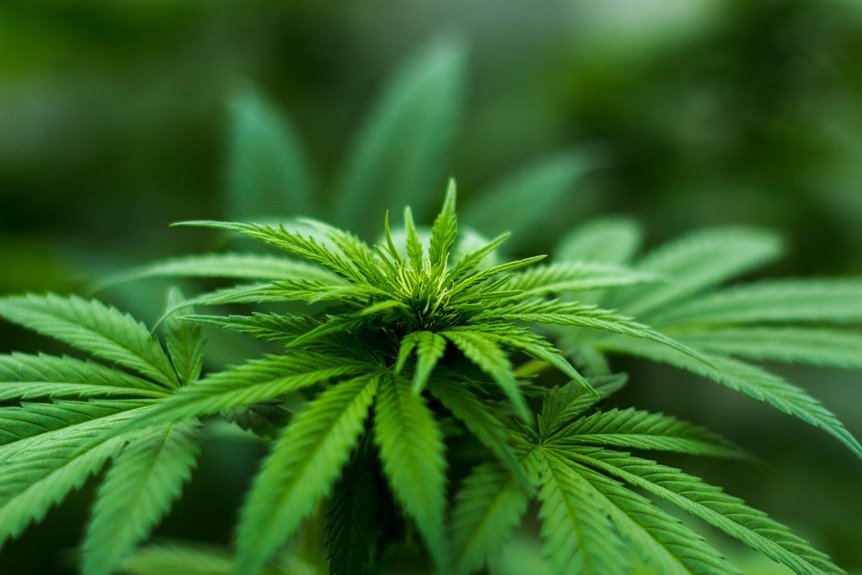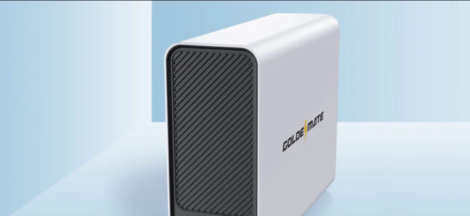Delta-8 is often a topic of confusion among consumers due to its classification as a cannabinoid. It is chemically similar to THC, specifically delta-9 THC, which is known for its psychoactive properties. Unlike CBD, which is non-psychoactive, delta-8 offers a milder high, appealing to those seeking a balanced experience. Understanding its chemical structure and effects can clarify its position within the spectrum of cannabinoids. What implications does this have for its legal standing and potential benefits?
What Is Delta-8?
Delta-8, a cannabinoid derived from the cannabis plant, has garnered attention for its unique properties and effects.
Its origins trace back to the natural degradation of delta-9 THC, leading to a milder psychoactive experience.
Growing popularity stems from consumers seeking alternative options that provide relaxation without the intense effects often associated with traditional THC, reflecting a desire for freedom in cannabinoid use.
The Chemical Structure of Delta-8
The chemical structure of delta-8 THC is characterized by its distinct molecular configuration, which consists of 21 carbon atoms, 30 hydrogen atoms, and 2 oxygen atoms, represented by the formula C21H30O2.
These delta 8 characteristics highlight molecular differences from other cannabinoids, influencing its effects and interactions within the body.
Understanding this structure is crucial for comprehending its unique properties within the cannabis spectrum.
Differences Between Delta-8, CBD, and THC
Cannabinoids exhibit a range of properties that differentiate them within the cannabis plant, with delta-8 THC, CBD, and delta-9 THC each possessing unique characteristics.
Delta-8 THC offers potential benefits such as reduced anxiety and enhanced relaxation, while CBD is non-psychoactive and primarily used for wellness.
Delta-8 safety is a growing concern, particularly regarding regulation and product purity, contrasting with more established CBD safety standards.
Psychoactive Effects of Delta-8
How do the psychoactive effects of delta-8 THC compare to its more well-known counterpart, delta-9 THC?
Delta-8 effects are often described as milder, providing a smoother experience with less anxiety and paranoia.
This distinction may enhance delta-8 safety for users seeking relaxation without intense psychoactivity.
Understanding these differences is crucial for individuals exploring cannabis options while prioritizing their mental well-being and autonomy.
Legal Status of Delta-8
As users consider the psychoactive effects of delta-8 THC, understanding its legal status becomes increasingly relevant.
Delta 8 legality varies significantly across states due to differing regulations. Some states embrace delta-8 products, while others have imposed restrictions or outright bans.
This patchwork of state regulations necessitates careful consideration for consumers seeking to navigate the complex legal landscape surrounding delta-8 THC.
Potential Benefits of Delta-8
While delta-8 THC shares similarities with its more well-known counterpart, delta-9 THC, it is often noted for its unique potential benefits that may appeal to users seeking a milder psychoactive experience.
Emerging research and user testimonials suggest potential therapeutic applications, including anxiety reduction and pain relief. This could position delta-8 as a viable alternative for those desiring a gentler approach to cannabinoid effects.
How Is Delta-8 Derived?
Delta-8 THC is primarily derived from hemp through a two-step process involving extraction and isomerization.
Initially, cannabinoids are extracted from hemp plants, yielding a crude extract rich in CBD and other compounds.
This extract undergoes isomerization, where CBD is converted into Delta-8 THC through chemical reactions, resulting in a product that retains some of the characteristics of its precursor while exhibiting its own unique properties.
Extraction From Hemp
The extraction of Delta-8 THC from hemp involves a complex process that begins with the isolation of cannabinoids.
Various hemp varieties, particularly those high in CBD, are chosen for their favorable profiles.
Different extraction methods, such as CO2 extraction and ethanol extraction, are employed to efficiently extract the desired compounds while preserving their integrity, paving the way for further processing and refinement.
Isomerization Process Explained
Isomerization is a chemical process that plays a crucial role in the conversion of Delta-9 THC, the predominant psychoactive compound in cannabis, into Delta-8 THC.
Various isomerization methods utilize specific chemical reactions to rearrange the molecular structure of Delta-9 THC, resulting in the desired Delta-8 form.
This process enables the production of Delta-8 THC, offering an alternative cannabinoid experience.
Consumer Considerations for Delta-8 Products
When considering Delta-8 products, consumers must navigate several critical factors, including the legal status of these substances, their potency and effects, and product quality assurance.
Understanding the regulatory landscape is essential for ensuring compliance and safety.
Additionally, consumers should evaluate the reliability of product sourcing and testing to make informed choices.
Legal Status Overview
A complex legal landscape surrounds Delta-8 THC products, influenced by evolving regulations and varying state laws.
The legal implications of Delta-8 remain ambiguous, as some states classify it as legal under certain conditions, while others impose restrictions.
Consumers must be aware of state regulations, as the legality of Delta-8 can significantly impact production, distribution, and personal use of these products across the United States.
Potency and Effects
While Delta-8 THC is often marketed as a milder alternative to its more well-known counterpart, Delta-9 THC, its potency and effects warrant careful consideration by consumers.
Potency comparison reveals that Delta-8 possesses psychoactive properties, though typically less intense.
An effects analysis suggests it may provide relaxation and euphoria, but individual responses can vary significantly, highlighting the need for informed personal choices.
Product Quality Assurance
As consumers explore Delta-8 products, it becomes essential to assess product quality assurance to ensure safety and efficacy.
Quality control measures, including rigorous product testing, are vital in evaluating the reliability of Delta-8 offerings.
Consumers should seek transparent brands that provide third-party lab results, confirming cannabinoid concentrations and the absence of harmful contaminants, thereby empowering informed choices in their pursuit of freedom and wellness.
Conclusion
In summary, delta-8 stands at the crossroads of wellness and psychoactive experience, offering a gentler alternative to traditional THC. As consumers navigate the complex landscape of cannabinoids, delta-8 emerges as a beacon of potential relief and enjoyment. Yet, as with any emerging substance, one must tread carefully, weighing the benefits against the unknowns. Ultimately, the choice lies in the hands of individuals, who must decide whether to embrace this new frontier or remain anchored in the familiar.





 What Happens When You Take Too Much Cbd
What Happens When You Take Too Much Cbd